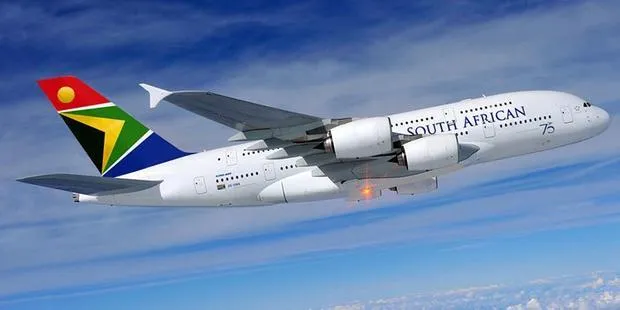South African Airways (SAA) is grappling with significant financial challenges as it attempts to recover over US$50 million trapped in Zimbabwe. This amount, approximately equivalent to R1 billion, has become a focal point of discussion during hearings by Parliament’s Standing Committee on Public Accounts (SCOPA). The ongoing difficulties in repatriating these funds, primarily generated from ticket sales, have raised concerns among lawmakers and airline officials alike.
During a recent SCOPA meeting, chairperson Songezo Zibi questioned the effectiveness of current efforts to reclaim the funds, suggesting that it may be time to consider attaching assets in South Africa belonging to Zimbabwean entities as a means of securing the trapped money. This inquiry reflects a growing frustration over the prolonged struggle faced by SAA in resolving the matter.
SAA has confirmed its current liquidity status; however, the airline emphasized that it will require a cash injection to support future expansion plans. The legacy of Zimbabwe’s foreign exchange crunch, which has persisted since 2016, continues to impact not only SAA but also several other airlines operating in the region. The constraints on foreign currency availability have left many airlines with similar financial predicaments, prompting calls for a reevaluation of how these situations are addressed.
Derek Hanekom, SAA’s board chairperson, highlighted the ongoing challenges in dealing with Zimbabwean authorities. “We’ve been in serious contact with the Zimbabwean government. R1.1 billion is not a small amount of money, and it’s not been easy,” he stated, emphasizing the complexities involved in navigating the legacy debt issues with the Zimbabwean government.
SAA’s chief financial officer, Lindsay Olitzski, provided additional context regarding the situation. She revealed that an agreement had been reached allowing $9 million to remain in Zimbabwe for local operational use. However, the remaining $50 million is subject to a payment plan proposed by the Zimbabwean government, which consists of payments of $1 million per quarter. This extended payment schedule has raised concerns about the feasibility and timeliness of recovering the funds. “Now that is a very long payment plan, and to date, we have not yet received any funds,” Olitzski added, illustrating the ongoing frustration experienced by the airline.
Transport Minister Barbara Creecy acknowledged the situation and indicated that she would consider escalating the matter diplomatically once she received a comprehensive report from SAA. This potential diplomatic intervention underscores the significance of the issue, not just for the airline but for the broader South African economy, particularly in the aviation sector.
The implications of the ongoing financial struggles faced by SAA extend beyond the airline itself. The inability to repatriate funds can adversely affect operations, employee job security, and service delivery. It also raises questions about the reliability of Zimbabwe as a destination for airlines operating in the region, potentially deterring future investments and partnerships.
As the situation develops, stakeholders from both SAA and the South African government will need to work collaboratively to seek viable solutions. The financial constraints facing SAA are reflective of broader economic challenges in the region, highlighting the need for comprehensive strategies to address the foreign exchange crisis in Zimbabwe.
The path forward for SAA will require careful negotiation, diplomatic engagement, and potentially innovative solutions to recover the trapped funds. The outcome of these efforts will be closely watched by industry experts, policymakers, and the flying public, as it may set important precedents for how international airlines navigate similar challenges in the future.
In conclusion, while SAA remains liquid at present, the pressing need for a resolution regarding the US$50 million trapped in Zimbabwe underscores the complex interplay between international airlines and the economic realities of operating within challenging markets. The forthcoming actions by the South African government and SAA will be critical in determining the airline’s ability to recover and thrive in a competitive aviation landscape.
In other news – Tbo Touch shares the spotlight with Burna Boy and Akon
South African media personality Tbo Touch had an unforgettable experience on Wednesday at the much-anticipated concert featuring global superstars Burna Boy and Akon in Los Angeles. This remarkable event was part of their “Headliners Only” tour, a concert series designed to deliver an unparalleled musical experience.
The “Headliners Only” tour is revolutionary in its approach, bringing together the vibrant sounds of Afrobeat, R&B, and hip-hop without the usual opening acts. Fans can expect a full evening dedicated to the powerhouse performances of both Burna Boy and Akon, creating a unique atmosphere that emphasizes star power and artistry. Read More

